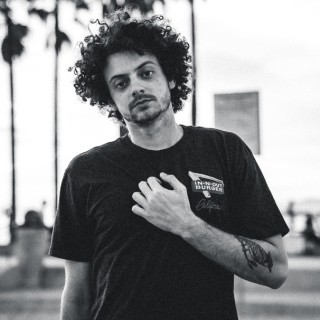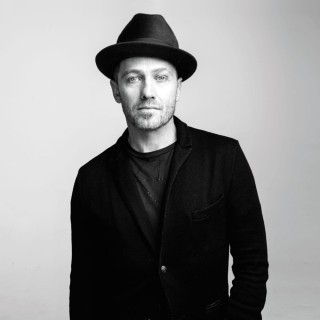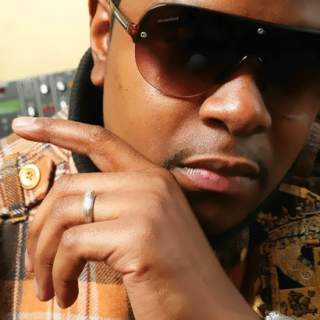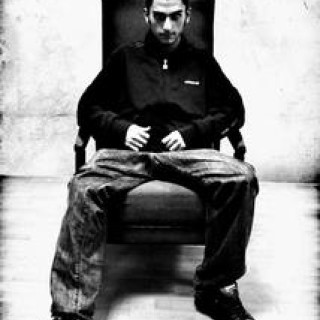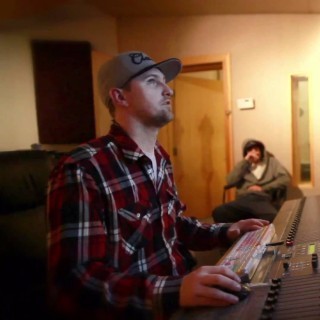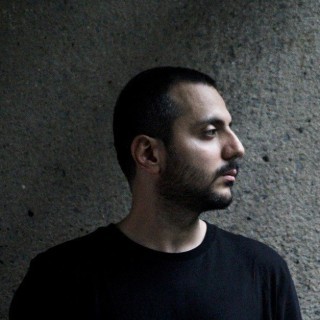
86
Poetry
Tekst piosenki
SCENE.II.-The dual chamber
Marino Faliero, Doge; and his Nephew, Bertuccio Faliero.
Ber. F. It cannot be but they will do you justice.
Doge. Aye, such as the Avogadori did,
Who sent up my appeal unto the Forty
To try him by his peers, his own tribunal.
Ber. F. His peers will scarce protect him; such an act
Would bring contempt on all authority.
Doge. Know you not Venice? Know you not the Forty?
But we shall see anon.
Ber. F. (addressing Vincenzo, then entering.)
How now—what tidings?
Vin. I am charged to tell his Highness that the court
Has passed its resolution, and that, soon
As the due forms of judgment are gone through,
The sentence will be sent up to the Doge;
In the mean time the Forty doth salute
The Prince of the Republic, and entreat
His acceptation of their duty.
Doge. Yes—
They are wond'rous dutiful, and ever humble.
Sentence is passed, you say?
Vin. It is, your Highness:
The President was sealing it, when I
Was called in, that no moment might be lost
In forwarding the intimation due
Not only to the Chief of the Republic,
But the complainant, both in one united.
Ber. F. Are you aware, from aught you have perceived,
Of their decision?
Vin. No, my Lord; you know
The secret custom of the courts in Venice.
Ber. F. True; but there still is something given to guess,
Which a shrewd gleaner and quick eye would catch at;
A whisper, or a murmur, or an air
More or less solemn spread o'er the tribunal.
The Forty are but men—most worthy men,
And wise, and just, and cautious—this I grant—
And secret as the grave to which they doom
The guilty: but with all this, in their aspects—
At least in some, the juniors of the number—
A searching eye, an eye like yours, Vincenzo,
Would read the sentence ere it was pronounced.
Vin. My Lord, I came away upon the moment,
And had no leisure to take note of that
Which passed among the judges, even in seeming;
My station near the accused too, Michel Steno,
Made me—
Doge (abruptly). And how looked he? deliver that.
Vin. Calm, but not overcast, he stood resigned
To the decree, whate'er it were;—but lo!
It comes, for the perusal of his Highness.
Enter the Secretary of the Forty.
Sec. The high tribunal of the Forty sends
Health and respect to the Doge Faliero,
Chief magistrate of Venice, and requests
His Highness to peruse and to approve
The sentence passed on Michel Steno, born
Patrician, and arraigned upon the charge
Contained, together with its penalty,
Within the rescript which I now present.
Doge. Retire, and wait without.
[Exeunt Secretary and Vincenzo.
Take thou this paper:
The misty letters vanish from my eyes;
I cannot fix them.
Ber. F. Patience, my dear Uncle:
Why do you tremble thus?—nay, doubt not, all
Will be as could be wished.
Doge. Say on.
Ber. F. (reading). "Decreed
In council, without one dissenting voice,
That Michel Steno, by his own confession,
Guilty on the last night of Carnival
Of having graven on the ducal throne
The following words—"
Doge. Would'st thou repeat them?
Would'st thou repeat them—thou, a Faliero,
Harp on the deep dishonour of our house,
Dishonoured in its Chief—that Chief the Prince
Of Venice, first of cities?—To the sentence.
Ber. F. Forgive me, my good Lord; I will obey—
(Reads) "That Michel Steno be detained a month
In close arrest."
Doge. Proceed.
Ber. F. My Lord, 'tis finished.
Doge. How say you?—finished! Do I dream?—'tis false—
Give me the paper—(snatches the paper and reads)—
"'Tis decreed in council
That Michel Steno"—Nephew, thine arm!
Ber. F. Nay,
Cheer up, be calm; this transport is uncalled for—
Let me seek some assistance.
Doge. Stop, sir—Stir not—
'Tis past.
Ber. F. I cannot but agree with you
The sentence is too slight for the offence;
It is not honourable in the Forty
To affix so slight a penalty to that
Which was a foul affront to you, and even
To them, as being your subjects; but 'tis not
Yet without remedy: you can appeal
To them once more, or to the Avogadori,
Who, seeing that true justice is withheld,
Will now take up the cause they once declined,
And do you right upon the bold delinquent.
Think you not thus, good Uncle? why do you stand
So fixed? You heed me not:—I pray you, hear me!
Doge (dashing down the ducal bonnet, and offering to
trample upon it, exclaims, as he is withheld by his nephew).
Oh! that the Saracen were in St. Mark's!
Thus would I do him homage.
Ber. F. For the sake
Of Heaven and all its saints, my Lord—
Doge. Away!
Oh, that the Genoese were in the port!
Oh, that the Huns whom I o'erthrew at Zara
Were ranged around the palace!
Ber. F. 'Tis not well
In Venice' Duke to say so.
Doge. Venice' Duke!
Who now is Duke in Venice? let me see him,
That he may do me right.
Ber. F. If you forget
Your office, and its dignity and duty.
Remember that of man, and curb this passion.
The Duke of Venice——
Doge (interrupting him). There is no such thing—
It is a word—nay, worse—a worthless by-word:
The most despised, wronged, outraged, helpless wretch,
Who begs his bread, if 'tis refused by one,
May win it from another kinder heart;
But he, who is denied his right by those
Whose place it is to do no wrong, is poorer
Than the rejected beggar—he's a slave—
And that am I—and thou—and all our house,
Even from this hour; the meanest artisan
Will point the finger, and the haughty noble
May spit upon us:—where is our redress?
Ber. F. The law, my Prince—
Doge (interrupting him). You see what it has done;
I asked no remedy but from the law—
I sought no vengeance but redress by law—
I called no judges but those named by law—
As Sovereign, I appealed unto my subjects,
The very subjects who had made me Sovereign,
And gave me thus a double right to be so.
The rights of place and choice, of birth and service,
Honours and years, these scars, these hoary hairs,
The travel—toil—the perils—the fatigues—
The blood and sweat of almost eighty years,
Were weighed i' the balance, 'gainst the foulest stain,
The grossest insult, most contemptuous crime
Of a rank, rash patrician—and found wanting!
And this is to be borne!
Ber. F. I say not that:—
In case your fresh appeal should be rejected,
We will find other means to make all even.
Doge. Appeal again! art thou my brother's son?
A scion of the house of Faliero?
The nephew of a Doge? and of that blood
Which hath already given three dukes to Venice?
But thou say'st well—we must be humble now.
Ber. F. My princely Uncle! you are too much moved;—
I grant it was a gross offence, and grossly
Left without fitting punishment: but still
This fury doth exceed the provocation,
Or any provocation: if we are wronged,
We will ask justice; if it be denied,
We'll take it; but may do all this in calmness—
Deep Vengeance is the daughter of deep Silence.
I have yet scarce a third part of your years,
I love our house, I honour you, its Chief,
The guardian of my youth, and its instructor—
But though I understand your grief, and enter
In part of your disdain, it doth appal me
To see your anger, like our Adrian waves,
O'ersweep all bounds, and foam itself to air.
Doge. I tell thee—must I tell thee—what thy father
Would have required no words to comprehend?
Hast thou no feeling save the external sense
Of torture from the touch? hast thou no soul—
No pride—no passion—no deep sense of honour?
Ber. F. 'Tis the first time that honour has been doubted,
And were the last, from any other sceptic.
Doge. You know the full offence of this born villain,
This creeping, coward, rank, acquitted felon,
Who threw his sting into a poisonous libel,
And on the honour of—Oh God! my wife,
The nearest, dearest part of all men's honour,
Left a base slur to pass from mouth to mouth
Of loose mechanics, with all coarse foul comments,
And villainous jests, and blasphemies obscene;
While sneering nobles, in more polished guise,
Whispered the tale, and smiled upon the lie
Which made me look like them—a courteous wittol,
Patient—aye—proud, it may be, of dishonour.
Ber. F. But still it was a lie—you knew it false,
And so did all men.
Doge. Nephew, the high Roman
Said, "Cæsar's wife must not even be suspected,"
And put her from him.
Ber. F. True—but in those days——
Doge. What is it that a Roman would not suffer,
That a Venetian Prince must bear? old Dandolo
Refused the diadem of all the Cæsars,
And wore the ducal cap I trample on—
Because 'tis now degraded.
Ber. F. 'Tis even so.
Doge. It is—it is;—I did not visit on
The innocent creature thus most vilely slandered
Because she took an old man for her lord,
For that he had been long her father's friend
And patron of her house, as if there were
No love in woman's heart but lust of youth
And beardless faces;—I did not for this
Visit the villain's infamy on her,
But craved my country's justice on his head,
The justice due unto the humblest being
Who hath a wife whose faith is sweet to him,
Who hath a home whose hearth is dear to him—
Who hath a name whose honour's all to him,
When these are tainted by the accursing breath
Of Calumny and Scorn.
Ber. F. And what redress
Did you expect as his fit punishment?
Doge. Death! Was I not the Sovereign of the state—
Insulted on his very throne, and made
A mockery to the men who should obey me?
Was I not injured as a husband? scorned
As man? reviled, degraded, as a Prince?
Was not offence like his a complication
Of insult and of treason?—and he lives!
Had he instead of on the Doge's throne
Stamped the same brand upon a peasant's stool,
His blood had gilt the threshold; for the carle
Had stabbed him on the instant.
Ber. F. Do not doubt it,
He shall not live till sunset—leave to me
The means, and calm yourself.
Doge. Hold, nephew: this
Would have sufficed but yesterday; at present
I have no further wrath against this man.
Ber. F. What mean you? is not the offence redoubled
By this most rank—I will not say—acquittal;
For it is worse, being full acknowledgment
Of the offence, and leaving it unpunished?
Doge. It is redoubled, but not now by him:
The Forty hath decreed a month's arrest—
We must obey the Forty.
Ber. F. Obey them!
Who have forgot their duty to the Sovereign?
Doge. Why, yes;—boy, you perceive it then at last;
Whether as fellow citizen who sues
For justice, or as Sovereign who commands it,
They have defrauded me of both my rights
(For here the Sovereign is a citizen);
But, notwithstanding, harm not thou a hair
Of Steno's head—he shall not wear it long.
Ber. F. Not twelve hours longer, had you left to me
The mode and means; if you had calmly heard me,
I never meant this miscreant should escape,
But wished you to suppress such gusts of passion,
That we more surely might devise together
His taking off.
Doge. No, nephew, he must live;
At least, just now—a life so vile as his
Were nothing at this hour; in th' olden time
Some sacrifices asked a single victim,
Great expiations had a hecatomb.
Ber. F. Your wishes are my law: and yet I fain
Would prove to you how near unto my heart
The honour of our house must ever be.
Doge. Fear not; you shall have time and place of proof:
But be not thou too rash, as I have been.
I am ashamed of my own anger now;
I pray you, pardon me.
Ber. F. Why, that's my uncle!
The leader, and the statesman, and the chief
Of commonwealths, and sovereign of himself!
I wondered to perceive you so forget
All prudence in your fury at these years,
Although the cause—
Doge. Aye—think upon the cause—
Forget it not:—When you lie down to rest,
Let it be black among your dreams; and when
The morn returns, so let it stand between
The Sun and you, as an ill-omened cloud
Upon a summer-day of festival:
So will it stand to me;—but speak not, stir not,—
Leave all to me; we shall have much to do,
And you shall have a part.—But now retire,
'Tis fit I were alone.
Ber. F. (taking up and placing the ducal bonnet on the table).
Ere I depart,
I pray you to resume what you have spurned,
Till you can change it—haply, for a crown!
And now I take my leave, imploring you
In all things to rely upon my duty,
As doth become your near and faithful kinsman,
And not less loyal citizen and subject.
[Exit Bertuccio FalieroBertuccio Faliero.
Doge (solus). Adieu, my worthy nephew.—Hollow bauble!
[Taking up the ducal cap.
Beset with all the thorns that line a crown,
Without investing the insulted brow
With the all-swaying majesty of Kings;
Thou idle, gilded, and degraded toy,
Let me resume thee as I would a vizor. [Puts it on.
How my brain aches beneath thee! and my temples
Throb feverish under thy dishonest weight.
Could I not turn thee to a diadem?
Could I not shatter the Briarean sceptre
Which in this hundred-handed Senate rules,
Making the people nothing, and the Prince
A pageant? In my life I have achieved
Tasks not less difficult—achieved for them,
Who thus repay me! Can I not requite them?
Oh for one year! Oh! but for even a day
Of my full youth, while yet my body served
My soul as serves the generous steed his lord,
I would have dashed amongst them, asking few
In aid to overthrow these swoln patricians;
But now I must look round for other hands
To serve this hoary head; but it shall plan
In such a sort as will not leave the task
Herculean, though as yet 'tis but a chaos
Of darkly brooding thoughts: my fancy is
In her first work, more nearly to the light
Holding the sleeping images of things
For the selection of the pausing judgment.—
The troops are few in——
Enter Vincenzo.
Vin. There is one without
Craves audience of your Highness.
Doge. I'm unwell—
I can see no one, not even a patrician—
Let him refer his business to the Council.
Vin. My Lord, I will deliver your reply;
It cannot much import—he's a plebeian,
The master of a galley, I believe.
Doge. How! did you say the patron of a galley?
That is—I mean—a servant of the state:
Admit him, he may be on public service.
[Exit Vincenzo.
Doge (solus). This patron may be sounded; I will try him.
I know the people to be discontented:
They have cause, since Sapienza's adverse day,
When Genoa conquered: they have further cause,
Since they are nothing in the state, and in
The city worse than nothing—mere machines,
To serve the nobles' most patrician pleasure.
The troops have long arrears of pay, oft promised,
And murmur deeply—any hope of change
Will draw them forward: they shall pay themselves
With plunder:—but the priests—I doubt the priesthood
Will not be with us; they have hated me
Since that rash hour, when, maddened with the drone,
I smote the tardy Bishop at Treviso,
Quickening his holy march; yet, ne'ertheless,
They may be won, at least their Chief at Rome,
By some well-timed concessions; but, above
All things, I must be speedy: at my hour
Of twilight little light of life remains.
Could I free Venice, and avenge my wrongs,
I had lived too long, and willingly would sleep
Next moment with my sires; and, wanting this,
Better that sixty of my fourscore years
Had been already where—how soon, I care not—
The whole must be extinguished;—better that
They ne'er had been, than drag me on to be
The thing these arch-oppressors fain would make me.
Let me consider—of efficient troops
There are three thousand posted at——
Enter Vincenzo and Israel Bertuccio.
Vin. May it please
Your Highness, the same patron whom I spake of
Is here to crave your patience.
Doge. Leave the chamber,
Vincenzo.—
[Exit Vincenzo.
Sir, you may advance—what would you?
I. Ber. Redress.
Doge. Of whom?
I. Ber. Of God and of the Doge.
Doge. Alas! my friend, you seek it of the twain
Of least respect and interest in Venice.
You must address the Council.
I. Ber. 'Twere in vain;
For he who injured me is one of them.
Doge. There's blood upon thy face—how came it there?
I. Ber. 'Tis mine, and not the first I've shed for Venice,
But the first shed by a Venetian hand:
A noble smote me.
Doge. Doth he live?
I. Ber. Not long—
But for the hope I had and have, that you,
My Prince, yourself a soldier, will redress
Him, whom the laws of discipline and Venice
Permit not to protect himself:—if not—
I say no more.
Doge. But something you would do—
Is it not so?
I. Ber. I am a man, my Lord.
Doge. Why so is he who smote you.
I. Ber. He is called so;
Nay, more, a noble one—at least, in Venice:
But since he hath forgotten that I am one,
And treats me like a brute, the brute may turn—
'Tis said the worm will.
Doge. Say—his name and lineage?
I. Ber. Barbaro.
Doge. What was the cause? or the pretext?
I. Ber. I am the chief of the arsenal, employed
At present in repairing certain galleys
But roughly used by the Genoese last year.
This morning comes the noble Barbaro
Full of reproof, because our artisans
Had left some frivolous order of his house,
To execute the state's decree: I dared
To justify the men—he raised his hand;—
Behold my blood! the first time it e'er flowed
Dishonourably.
Doge. Have you long time served?
I. Ber. So long as to remember Zara's siege,
And fight beneath the Chief who beat the Huns there,
Sometime my general, now the Doge Faliero.—
Doge. How! are we comrades?—the State's ducal robes
Sit newly on me, and you were appointed
Chief of the arsenal ere I came from Rome;
So that I recognised you not. Who placed you?
I. Ber. The late Doge; keeping still my old command
As patron of a galley: my new office
Was given as the reward of certain scars
(So was your predecessor pleased to say):
I little thought his bounty would conduct me
To his successor as a helpless plaintiff;
At least, in such a cause.
Doge. Are you much hurt?
I. Ber. Irreparably in my self-esteem.
Doge. Speak out; fear nothing: being stung at heart,
What would you do to be revenged on this man?
I. Ber. That which I dare not name, and yet will do.
Doge. Then wherefore came you here?
I. Ber. I come for justice,
Because my general is Doge, and will not
See his old soldier trampled on. Had any,
Save Faliero, filled the ducal throne,
This blood had been washed out in other blood.
Doge. You come to me for justice—unto me!
The Doge of Venice, and I cannot give it;
I cannot even obtain it—'twas denied
To me most solemnly an hour ago!
I. Ber. How says your Highness?
Doge. Steno is condemned
To a month's confinement.
I. Ber. What! the same who dared
To stain the ducal throne with those foul words,
That have cried shame to every ear in Venice?
Doge. Aye, doubtless they have echoed o'er the arsenal,
Keeping due time with every hammer's clink,
As a good jest to jolly artisans;
Or making chorus to the creaking oar,
In the vile tune of every galley-slave,
Who, as he sung the merry stave, exulted
He was not a shamed dotard like the Doge.
I. Ber. Is't possible? a month's imprisonment!
No more for Steno?
Doge. You have heard the offence,
And now you know his punishment; and then
You ask redress of me! Go to the Forty,
Who passed the sentence upon Michel Steno;
They'll do as much by Barbaro, no doubt.
I. Ber. Ah! dared I speak my feelings!
Doge. Give them breath.
Mine have no further outrage to endure.
I. Ber. Then, in a word, it rests but on your word
To punish and avenge—I will not say
My petty wrong, for what is a mere blow,
However vile, to such a thing as I am?—
But the base insult done your state and person.
Doge. You overrate my power, which is a pageant.
This Cap is not the Monarch's crown; these robes
Might move compassion, like a beggar's rags;
Nay, more, a beggar's are his own, and these
But lent to the poor puppet, who must play
Its part with all its empire in this ermine.
I. Ber. Wouldst thou be King?
Doge. Yes—of a happy people.
I. Ber. Wouldst thou be sovereign lord of Venice?
Doge. Aye,
If that the people shared that sovereignty,
So that nor they nor I were further slaves
To this o'ergrown aristocratic Hydra,
The poisonous heads of whose envenomed body
Have breathed a pestilence upon us all.
I. Ber. Yet, thou wast born, and still hast lived, patrician.
Doge. In evil hour was I so born; my birth
Hath made me Doge to be insulted: but
I lived and toiled a soldier and a servant
Of Venice and her people, not the Senate;
Their good and my own honour were my guerdon.
I have fought and bled; commanded, aye, and conquered;
Have made and marred peace oft in embassies,
As it might chance to be our country's 'vantage;
Have traversed land and sea in constant duty,
Through almost sixty years, and still for Venice,
My fathers' and my birthplace, whose dear spires,
Rising at distance o'er the blue Lagoon,
It was reward enough for me to view
Once more; but not for any knot of men,
Nor sect, nor faction, did I bleed or sweat!
But would you know why I have done all this?
Ask of the bleeding pelican why she
Hath ripped her bosom? Had the bird a voice,
She'd tell thee 'twas for all her little ones.
I. Ber. And yet they made thee Duke.
Doge. They made me so;
I sought it not, the flattering fetters met me
Returning from my Roman embassy,
And never having hitherto refused
Toil, charge, or duty for the state, I did not,
At these late years, decline what was the highest
Of all in seeming, but of all most base
In what we have to do and to endure:
Bear witness for me thou, my injured subject,
When I can neither right myself nor thee.
I. Ber. You shall do both, if you possess the will;
And many thousands more not less oppressed,
Who wait but for a signal—will you give it?
Doge. You speak in riddles.
I. Ber. Which shall soon be read
At peril of my life—if you disdain not
To lend a patient ear.
Doge. Say on.
I. Ber. Not thou,
Nor I alone, are injured and abused,
Contemned and trampled on; but the whole people
Groan with the strong conception of their wrongs:
The foreign soldiers in the Senate's pay
Are discontented for their long arrears;
The native mariners, and civic troops,
Feel with their friends; for who is he amongst them
Whose brethren, parents, children, wives, or sisters,
Have not partook oppression, or pollution,
From the patricians? And the hopeless war
Against the Genoese, which is still maintained
With the plebeian blood, and treasure wrung
From their hard earnings, has inflamed them further:
Even now—but, I forget that speaking thus,
Perhaps I pass the sentence of my death!
Doge. And suffering what thou hast done—fear'st thou death?
Be silent then, and live on, to be beaten
By those for whom thou hast bled.
I. Ber. No, I will speak
At every hazard; and if Venice' Doge
Should turn delator, be the shame on him,
And sorrow too; for he will lose far more
Than I.
Doge. From me fear nothing; out with it!
I. Ber. Know then, that there are met and sworn in secret
A band of brethren, valiant hearts and true;
Men who have proved all fortunes, and have long
Grieved over that of Venice, and have right
To do so; having served her in all climes,
And having rescued her from foreign foes,
Would do the same from those within her walls.
They are not numerous, nor yet too few
For their great purpose; they have arms, and means,
And hearts, and hopes, and faith, and patient courage.
Doge. For what then do they pause?
I. Ber. An hour to strike.
Doge (aside). Saint Mark's shall strike that hour!
I. Ber. I now have placed
My life, my honour, all my earthly hopes
Within thy power, but in the firm belief
That injuries like ours, sprung from one cause,
Will generate one vengeance: should it be so,
Be our Chief now—our Sovereign hereafter.
Doge. How many are ye?
I. Ber. I'll not answer that
Till I am answered.
Doge. How, sir! do you menace?
I. Ber. No; I affirm. I have betrayed myself;
But there's no torture in the mystic wells
Which undermine your palace, nor in those
Not less appalling cells, the "leaden roofs,"
To force a single name from me of others.
The Pozzi and the Piombi were in vain;
They might wring blood from me, but treachery never.
And I would pass the fearful "Bridge of Sighs,"
Joyous that mine must be the last that e'er
Would echo o'er the Stygian wave which flows
Between the murderers and the murdered, washing
The prison and the palace walls: there are
Those who would live to think on't, and avenge me.
Doge. If such your power and purpose, why come here
To sue for justice, being in the course
To do yourself due right?
I. Ber. Because the man,
Who claims protection from authority,
Showing his confidence and his submission
To that authority, can hardly be
Suspected of combining to destroy it.
Had I sate down too humbly with this blow,
A moody brow and muttered threats had made me
A marked man to the Forty's inquisition;
But loud complaint, however angrily
It shapes its phrase, is little to be feared,
And less distrusted. But, besides all this,
I had another reason.
Doge. What was that?
I. Ber. Some rumours that the Doge was greatly moved
By the reference of the Avogadori
Of Michel Steno's sentence to the Forty
Had reached me. I had served you, honoured you,
And felt that you were dangerously insulted,
Being of an order of such spirits, as
Requite tenfold both good and evil: 'twas
My wish to prove and urge you to redress.
Now you know all; and that I speak the truth,
My peril be the proof.
Doge. You have deeply ventured;
But all must do so who would greatly win:
Thus far I'll answer you—your secret's safe.
I. Ber. And is this all?
Doge. Unless with all intrusted,
What would you have me answer?
I. Ber. I would have you
Trust him who leaves his life in trust with you.
Doge. But I must know your plan, your names, and numbers;
The last may then be doubled, and the former
Matured and strengthened.
I. Ber. We're enough already;
You are the sole ally we covet now.
Doge. But bring me to the knowledge of your chiefs.
I. Ber. That shall be done upon your formal pledge
To keep the faith that we will pledge to you.
Doge. When? where?
I. Ber. This night I'll bring to your apartment
Two of the principals: a greater number
Were hazardous.
Doge. Stay, I must think of this.—
What if I were to trust myself amongst you,
And leave the palace?
I. Ber. You must come alone.
Doge. With but my nephew.
I. Ber. Not were he your son!
Doge. Wretch! darest thou name my son? He died in arms
At Sapienza for this faithless state.
Oh! that he were alive, and I in ashes!
Or that he were alive ere I be ashes!
I should not need the dubious aid of strangers.
I. Ber. Not one of all those strangers whom thou doubtest,
But will regard thee with a filial feeling,
So that thou keep'st a father's faith with them.
Doge. The die is cast. Where is the place of meeting?
I. Ber. At midnight I will be alone and masked
Where'er your Highness pleases to direct me,
To wait your coming, and conduct you where
You shall receive our homage, and pronounce
Upon our project.
Doge. At what hour arises
The moon?
I. Ber. Late, but the atmosphere is thick and dusky,
'Tis a sirocco.
Doge. At the midnight hour, then,
Near to the church where sleep my sires; the same,
Twin-named from the apostles John and Paul;
A gondola, with one oar only, will
Lurk in the narrow channel which glides by.
Be there.
I. Ber. I will not fail.
Doge. And now retire——
I. Ber. In the full hope your Highness will not falter
In your great purpose. Prince, I take my leave.
[Exit Isreal Bertuccio.
Doge (solus). At midnight, by the church Saints John and Paul,
Where sleep my noble fathers, I repair—
To what? to hold a council in the dark
With common ruffians leagued to ruin states!
And will not my great sires leap from the vault,
Where lie two Doges who preceded me,
And pluck me down amongst them? Would they could!
For I should rest in honour with the honoured.
Alas! I must not think of them, but those
Who have made me thus unworthy of a name
Noble and brave as aught of consular
On Roman marbles; but I will redeem it
Back to its antique lustre in our annals,
By sweet revenge on all that's base in Venice,
And freedom to the rest, or leave it black
To all the growing calumnies of Time,
Which never spare the fame of him who fails,
But try the Cæsar, or the Catiline,
By the true touchstone of desert—Success.
Tłumaczenie
Brak
Polecani artyści
Najnowsze teksty piosenek
Sprawdź teksty piosenek i albumy dodane w ciągu ostatnich 7 dni
